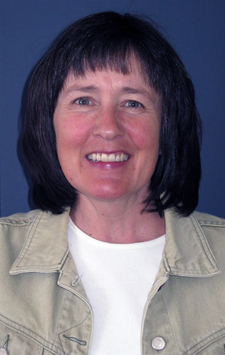
World Fair Trade Day is on Saturday May 8. As one of Canada’s official Fair Trade communities, we will be marking this event with Revelstoke’s First Annual World Fair Trade Day Celebration, taking place on Mackenzie Avenue from 9 am to 1 pm. We’ll have children’s activities, community displays, booths and some great demonstrations from local groups.
Revelstoke became the eighth community in Canada (and the third in BC) to achieve Fair Trade Town recognition in December, 2009. Becoming a Fair Trade Town means we are committed to supporting the principles of Fair Trade — fair prices, respect for labour standards, environmental sustainability and more direct and equitable trade.
The idea of a “Fair Trade Town” was born in England in 1999, when an Oxfam group in the town of Garstang wanted to promote Fair Trade as part of a community effort. The campaign soon captured the attention of regional and national media. Before long Garstang became a famous landmark and an international campaign was born. There are now more than 630 Fair Trade Towns in 18 countries!
The first city in Canada to be awarded Fair Trade Town status was Wolfville, Nova Scotia, in April, 2007. While the movement in this country is still young, it has remarkable momentum. In the short time since Revelstoke has been recognized, a number of communities have signed on to be next, including St. John’s, Quebec City and Vancouver. Revelstoke, we’re on the leading edge!
Becoming a Fair Trade Town requires a certain number of businesses to sell Fair Trade products. Other requirements include a commitment from city council to support the movement, and participation from workplaces, faith groups and schools to use and promote Fair Trade Certified products.
Achieving recognition as a Fair Trade Town is just the first step. Revelstoke’s Fair Trade Committee is working to increase the availability and awareness of Fair Trade Certified goods. While there are many products currently available — such as sugar, chocolate, coffee, tea, wine and spices — we would like to see that list broadened to include flowers, grains, fruits and even sports balls.
Did you know that about 75% of soccer balls are produced in Pakistan? Most of this work occurs in the Sialkot region in the north. Labourers carefully stitch the balls together by hand (there are 690 stitches in a standard size 5 soccer ball).Workers are paid for each ball completed. The average daily wage is 20 rupees, less than a third of the minimum wage of 63 rupees.
The International Labour Organization has estimated that more than 7000 children aged five to 14 work full-time at sewing soccer balls, up to 11 hours a day, in the Sialkot region alone. A large percentage of the labourers creating sports balls are women. Often, these women do not have a voice. Frequently, they face discrimination.
The Fair Trade process ensures the workers are receiving at least the minimum wage, and that the producers do not use child labour or discriminate against women. In addition to the Fair Trade price, certified producers receive a sum of money called the Fair Trade premium. Each producer has to have a Joint Body comprised of factory workers, piece-worker representatives and management. The Joint Body consults with those they represent and decides upon the best use of the Fair Trade premium money, which often goes to community projects for health and education.
Fair Trade Certified soccer balls are available in Canada and are just one small example of how the Fair Trade Certification system improves the livelihoods of millions of workers and farmers in the developing world. As a global movement, it creates awareness and encourages those of us lucky enough to live in developed nations to make ethical and sustainable choices. When you ask for Fair Trade Certified goods, you are making a difference.
So please join us for World Fair Trade Day on Saturday, May 8. We have much to celebrate, and there is much more we can do. Come find out more!
Mary Clayton is a member of the Revelstoke Fair Trade Committee



